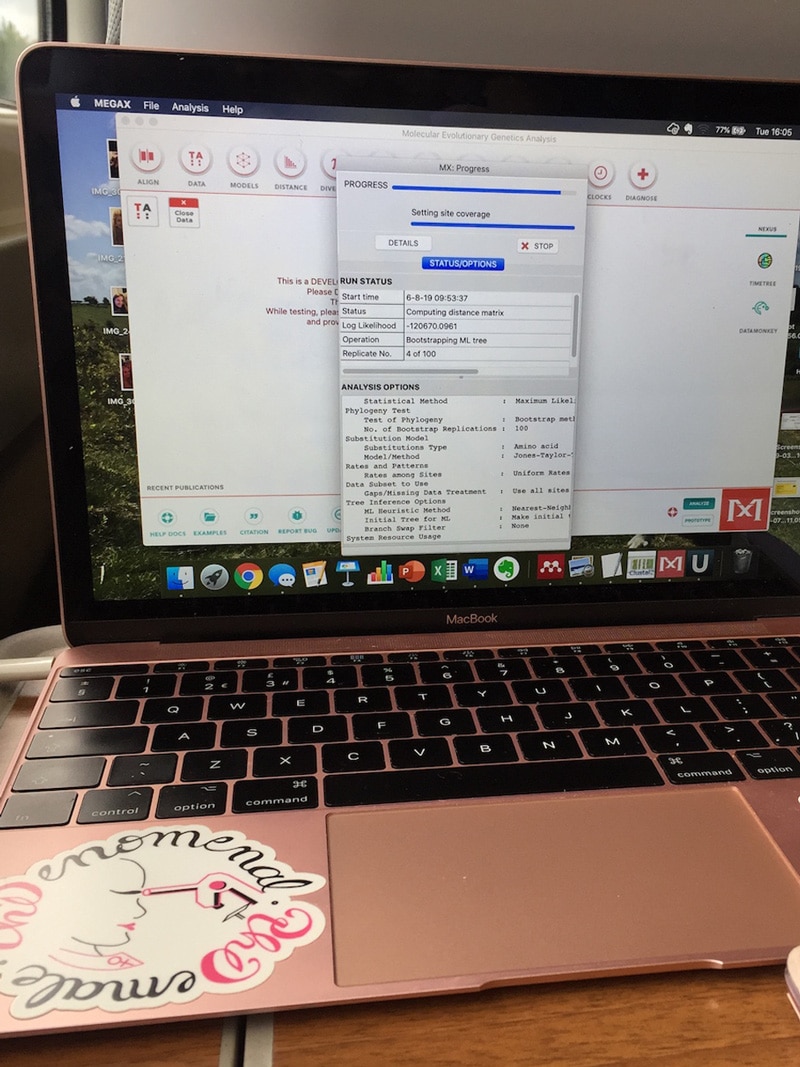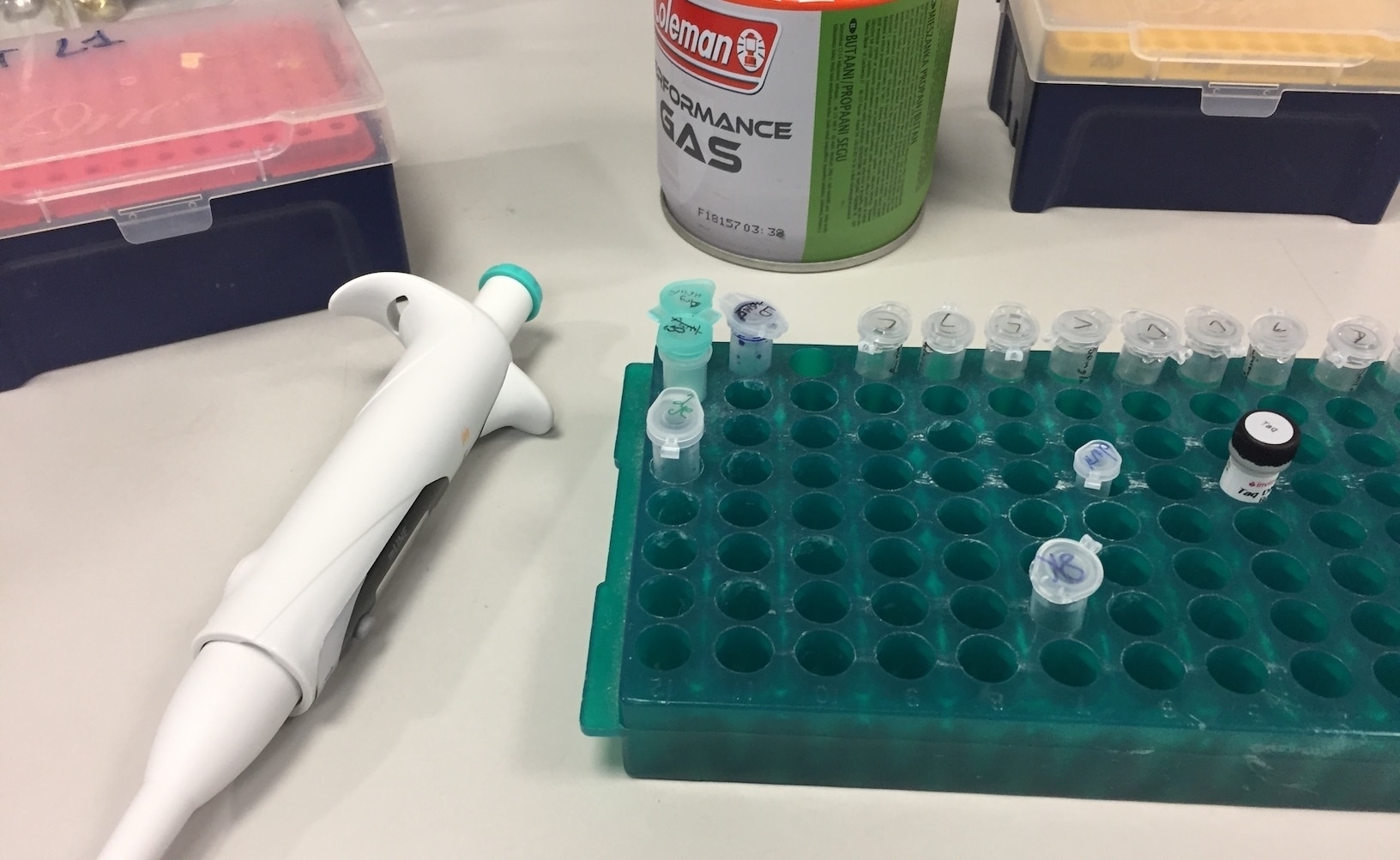Tell us a bit about yourself – what stage of your PhD are you in and what’s your project about?
Hi! I finished my PhD at the University of York in September last year and I have just started my first postdoc position at the University of Nottingham. I loved my PhD project! I used a combination of metabolic modelling, microbiology and molecular biology to research the adaptations that occur in the symbiosis between the tsetse fly and its bacterial microbiome. My current research uses a bioinformatics approach to find gene that co-occur in prokaryotic pangenomes more often that you would expect by chance, and I’m hoping to gain some insight into genome evolution and niche adaptation.
What does a typical day or week look like for you?
I have a 90 minute drive to get to work so I’m up early to get to the office for 7:30am. I like to start the day by reading a couple of papers, then it’s on to data analysis and writing manuscripts/grant applications. Once a week we have a lab meeting to talk through each other’s work and we end the week with journal club to go into one paper in depth, which is super fun! My hours were definitely more fluid during my PhD when I was doing wet lab work, and I often popped in on a weekend to check on my cells or set up an overnight culture.




What’s one thing that you’ve enjoyed the most during your PhD?
Apart from the science, I loved all the extra things that a PhD gives you the flexibility to do. I signed up as a STEM Ambassador and got involved in lots of outreach and Women in STEM events through that. I also became an early career committee member for the Microbiology Society which was such a good experience. I met so many people that I may not have otherwise, and felt so much more confident networking at conference because of it.
What’s been the most challenging part of it?
I found overcoming my personal, mental hurdles super challenging. Imposter syndrome is most definitely a problem, and lots of things in the lab (incubators, centrifuges, just expensive or loud machines generally, and MESS) really triggered my OCD. I was really fortunate to have excellent, supportive supervisors and I am super grateful for that.
Where do you see yourself 5 years after completing your PhD?



What’s one piece of advice that you’d offer students that are thinking of doing a PhD?
Look in different places for PhD adverts, not just the well-known training programmes. They are often advertised throughout the year on Twitter. If you know who you would like to work for, get in touch with them with a personal message that tells them exactly why you are interested in their group. If you can, speak to other members of the group to see what the supervisor is like to work for. But most importantly, do it because you have found something that you are so interested in that you are happy to dedicate years of your life to it. Because the experiments won’t always work, and you need to remember why you started to keep yourself going. (Sorry, that’s definitely more than one thing!)
What makes your university a good place to study?

York was a great place to do biology, their facilities are fantastic. It’s a really supportive department with lots going on. And of course, York is such a beautiful city to live in!
What do you enjoy doing in your free time?
I love exercise and sport (watching and playing). I took up marathon running during my PhD to give myself a break from the bench. I read a lot and like walking too, fresh air and sunlight are definitely good for your mental health.
Want to know more about Rebecca?
Follow her on twitter and instagram. Also check our her ORCID using the links below:
Twitter | Instagram | ORCID

